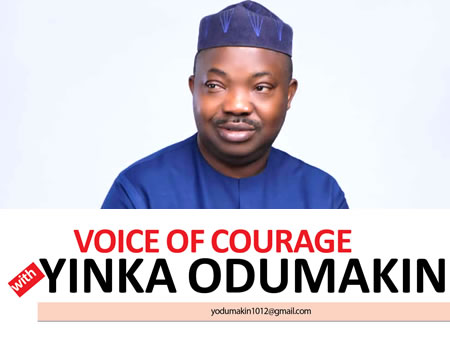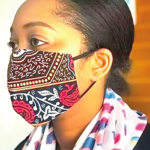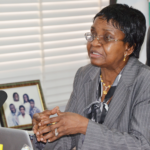Introduction
NIGERIA is still at a relatively early stage of the pandemic Covid-19 disease caused by a newly-discovered coronavirus called SARS-Cov-2 and therefore has the advantage to learn from other countries that have been ravaged by the disease and should spend this time to prepare carefully in containing the disease, suppressing its transmission and getting ready to scale up hospital capacity. To do this effectively, the leaders of the country need to think globally but act locally in their actions with respect to this highly contagious disease. Also, the healthcare workers and the general populace need to realise they have a significant role to play in this and hence, work with the government to achieve the above goals. Whilst this is a new disease with a lot to unravel but what we know now informs the need to take it very seriously – it is a highly infectious disease, there are no known preventive measures, no proven treatment/cure,no available vaccine and infected people not showing symptoms can transmit the virus.
Testing for Covid-19:
The diagnosis of Covid-19 needs confirmation by a complex test in the laboratory which looks for the presence of genetic material from the virus in samples from the patients. This testing is crucial to understand the presence and spread of the disease in the society. Nigeria needs todecentralise testing in order to improve the turnaround of the result and start to trace contacts quickly. A centralised testing system which the country is using at the moment is bedevilled with several challenges including logistics, batching of samples at the collection points and batching at the central testing centres; all of these will result in longer turnaround time of the result. At present, it takes three to five days to report the cases especially for those coming from outside the testing centres. A timely turnaround of result is ideally within 24 hours but certainly under 48hours. The prolonged centralisation of testing was a mistake made by many European and North American countries at the beginning of their own epidemic and many have struggled to suppress the transmission because of that. Whereas countries such as South Korea, Singapore and Germany that tested widely were able to suppress transmission and they have recorded the least number of deaths. Nigeria is definitely in a position to do this as every state in the country has a molecular lab (used for HIV diagnosis) that can be used for the diagnosis of Covid-19. I will also suggest that NCDC should look into diversifying the platforms used as that will allow them to get reagents from different suppliers rather than struggling with a single supplier.
There is also a need to look for an easier way of collecting samples. The current collection method of sticking a swab stick to the back of the throat and nostrils is not easy and can lead to false negative results if not properly done. However, recently, saliva from infected persons has been reported to be as effective as swabbing the nose/throat and this is far much easier to collect. Nigeria can work on such a method and pilot using saliva alongside nasal/throat swabs at this early stage. Moreover, the country should seek to learn from other African countries such as Senegal which has developed their own quicker diagnostic technique using saliva and blood samples which are easier to collect and transport.
Testing for other diseases:
The common symptoms of Covid-19 are fever, cough and body aches with shortness of breath in the more serious cases. The common diseases in Nigeria that can mimic Covid-19 are malaria with the fever and body aches and tuberculosis (TB) with the cough. These two diseases are much easier to diagnose now. So, acting locally, it should be mandated that every new case of fever presenting to any healthcare facility should have a blood test for malaria as well as the swab for Covid. A positive malaria test should be treated and patient observed. A negative malaria test should immediately trigger contact tracing and isolation of the patient. Also, new patients should be given a new facemask to wear on arrival at a healthcare facility. Equally, all healthcare practices should heighten their index of suspicion and approach any new patient with as much caution as possible including at least wearing a facemask and eye protection.
Lockdown and social distancing:
The lockdown of the society enables social distancing and this is crucial to slowing down the community transmission of the disease. However, achieving a near successful lockdown and social distancing will be a challenge in a society like Nigeria with a strong communal living system and reliance on daily market activities for sustenance especially given poor infrastructure for storage. Hence for this to be effective at all, there is a need for original thinking and strong collaborative working with the community directly. Such existing community groups as religious organisations of churches and mosques as well as civil liberty groups should be engaged in this. The religious networks of churches and mosques should be used as people are more likely to listen to their pastors and imams than government officials. These religious leaders and their organisations should be engaged in the public health awareness about this disease.
Lockdowns and social distancing affect people’s livelihoods, so to be effective relief measures must be put in place. Innovative ways need to be sought to achieve this. For example all available local halls – church, school, event centres and town halls could be repossessed and be used to distribute relief materials in a controlled way; turn some into emergency shopping outlets with ability to control crowd and maintain distancing for marketers and customers. Larger spaces such as school (including higher institutions) playgrounds, stadiums and army barracks could be turned into temporary markets where people can be counted in and monitored. In addition, relief materialscan be directly delivered to people especially in smaller community groups.
The military and civil society groups should be actively engaged in logistics, distribution and security with respect to relief materials in particular. The leaders need to publicly demonstrate more social distancing actions than just wearing face mask. Whilst wearing of face mask may play a role in an infected person spreading the disease to those around them, it needs to be accompanied with the more important social distancing actions such as no handshakes, no embracing, regular handwashing and keeping a two-metre distance from others.
The value of effective lockdown and contact tracing can even be seen in Nigeria now with some states such as Ondo keeping the spread down from their index case for several weeks whereas in Kano with ineffective lockdown, their confirmed cases have increased astronomically within two weeks. Also, as it appears the disease is largely urban based at the moment, part of the strategy should be to strongly discourage city dwellers visiting their villages and vice-versa as it will be difficult to monitor the situation in those largely out of reach villages. The more vulnerable members of the society (the elderly and those with underlying diseases like obesity, diabetes, hypertension and lung diseases like asthma, in whom the diseases may have serious consequences) should be strongly encouraged to shield themselves from others to minimise their risk.
Prepare for surge in hospital capacity:
The main cause of death in the disease is when people developed serious breathing disorder which requires hospital admission and treatment often in intensive care unit (ICU) where machines are used to assist the breathing and delivery of oxygen to the patient’s lungs. A widespread transmission of the disease increases the chances of this happening and a resultant overwhelming of the critical care capacity of the hospitals. This contributed significantly to the high death rate from the disease in the western countries especially when they have not prepared well for this surge. Therefore, a thorough assessment of the ICU capacity in government and private hospitals is required and then plan to increase capacity by using operating rooms. Plans should also be made for surge in bed occupancy for non-ICU cases including preparing and designating some hospitals as Covidhot and maximise their capacities. Some of the re-possessed public spaces can also be converted to emergency hospitals for milder cases and train health care workers to manage them. More medics and nurses should be trained in intensive care work and refresher courses run for medical workers who have had less clinical work to increase capacity. It is important to work collaboratively with private healthcare providers as they represent more than 60 per cent care facilities in the country and largely act as the de-facto primary health care system.
Wider engagement with industry:
There is a need to work with industry and universities to produce materials locally especially personal protective equipment (PPE) including producing facemasks with local materials in order to make the specialised ones available for use in healthcare facilities by patients and healthcare workers. Government should also encourage and facilitate local production of some of the chemicals for testing, ventilators and mobile phone apps for contact tracing and distribution of materials. People should in addition be empowered to produce practical handwashing systems that allow for free flowing of water by for example adding taps to the end of buckets on a stand to facilitate handwashing and improved levels of hygiene.
Conclusion:
In summary, the Covid 19 pandemic is real and spreading fast. As at the time of this writing, more than 3.2 million cases have been worldwide with 210 countries affected. Sadly, more than 200,000 have died and the number is steadily rising. Nigeria is comparatively at an early stage and we can learn lessons from the experiences of countries that have been battling with the virus. The government in conjunction with people should act promptly thinking globally but acting locally and begin to implement measures that have been shown to be help in the control of spread of the disease.
- Dr Olorunda Rotimi is currently the Clinical Director for Pathology in a large Teaching Hospital in the UK and oversees a laboratory involved in the diagnosis of Covid-19 but this article is written in a personal professional capacity. He interacted with broadcasters on the Arise TV and the NTA on 15 & 17, April 2020.
YOU SHOULD NOT MISS THESE HEADLINES FROM NIGERIAN TRIBUNE
Buy and read digital replicas of your TRIBUNE titles by subscribing through E-VENDING
COVID-19: Dokpesi, Daughter-In-Law, Six Other Family Members Test Positive
The founder of DAAR Communications Plc, High Chief Raymond Dokpesi and his daughter-in-law along with six members of his family have tested positive for coronavirus. This is coming three days after his son and Chairman of the board of the company, Raymond Dokpesi Jnr, also tested positive for the virus… Read full story
Kano And The Mad Woman Of Omu-Ijelu
Not long ago, the funny character, who presides over the affairs of Kano State as the governor, Umar Ganduje, raised the alarm that the Federal Government had literarily abandoned the state in its quest to combat the rampaging Coronavirus epidemic… Read full story
Lagos Discharges Polish, Filipino, 24 Nigerians After Testing Negative For Coronavirus
Lagos State governor, Babajide Sanwo-Olu, on Friday announced that 26 more patients have been discharged from isolation centres in the state having tested negative twice consecutively to coronavirus. He said those discharged included 14 males and 12 females, including two foreign nationals – a Polish and a Filipino… Read full story
WHO To Identify Animal Source Of COVID-19 ― Director-General
Dr Tedros Ghebreyesus, the Director-General, World Health Organisation (WHO), said the agency will work with relevant organisations to identify the animal source of novel Coronavirus (COVID-19) based on Emergency Committee recommendations… Read full story
COVID-19: Workers Won’t Be Retrenched Without Following Due Process, Says Buhari
President Muhammadu Buhari has told workers that despite the expected downturn in the nation’s economy owing to the coronavirus pandemic, the Federal Government will ensure that workers won’t be retrenched without due process. Seeking to allay the fears of workers for their jobs, which has heightened recently… Read full story
COVID-19: Osun Monarchs Want Govt To Explore Herbal Medicine
SOME traditional rulers in Osun State have charged their subjects to abide by all the precautionary measures announced by the World Health Organization (WHO), Federal Government and health experts in the state so as to stay safe against the ravaging COVID-19 pandemic in the country… Read full story
Nigeria COVID-19 Survivor: ‘An Experience I Don’t Wish On Anyone’
It feels great to have survived COVID-19. If you see the data of people who have passed away due to the virus, they are alarming. I’m really grateful to be alive but also grateful for the experience as I am able to share with people that COVID-19 is not a hoax like many people may believe in Nigeria… Read full story
Our Fears Living Close To Isolation Centres —Residents •Why we can’t relocate you —Govt
Lagos, which has the highest number of patients with COVID-19 infection, understandably has the highest number of isolation centres, topping four as of the last count. While two have been in use and frequently in news, two new ones located at Landmark Exhibition Centre in Victoria Island and Gbagada Hospital are… Read full story
Loss Of Smell May Suggest Milder COVID-19, Study Finds
New research suggests that loss of smell as a symptom of COVID-19 may indicate a mild case of the disease. A new study has found that loss of smell, which is a reported symptom of COVID-19, may indicate that a person will experience a milder case of the disease… Read full story
Covid19- And The Rising Global Challenge
It would not be an exaggeration to aver that Covid 19 has endangered human race globally in such a manner that is novel. Death tolls in countries like China, Italy, Spain, United Kingdom, USA, Germany, Iran and others are rattling and quaking the whole world and make many to be having the fear that the globe is on the… Read full story






